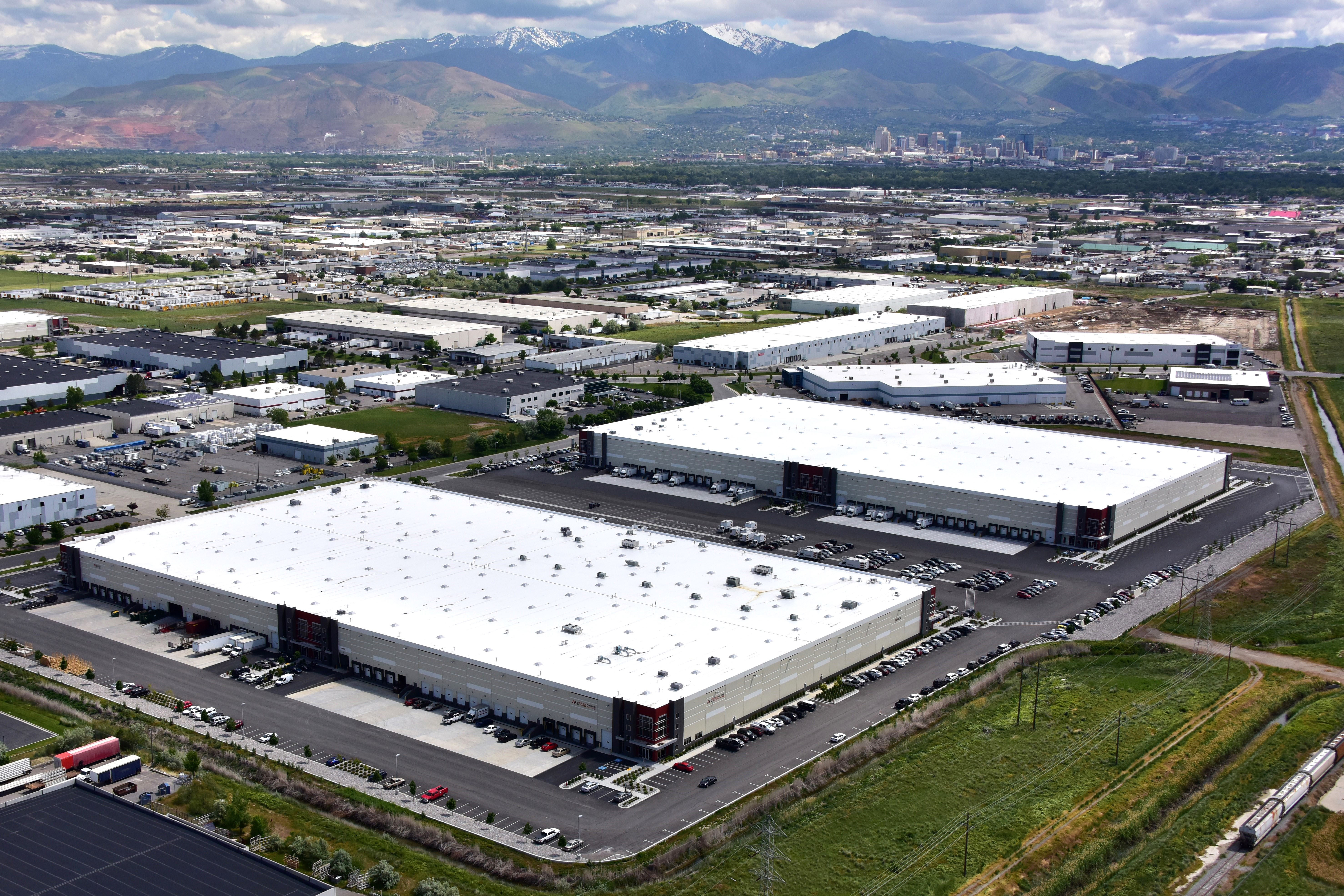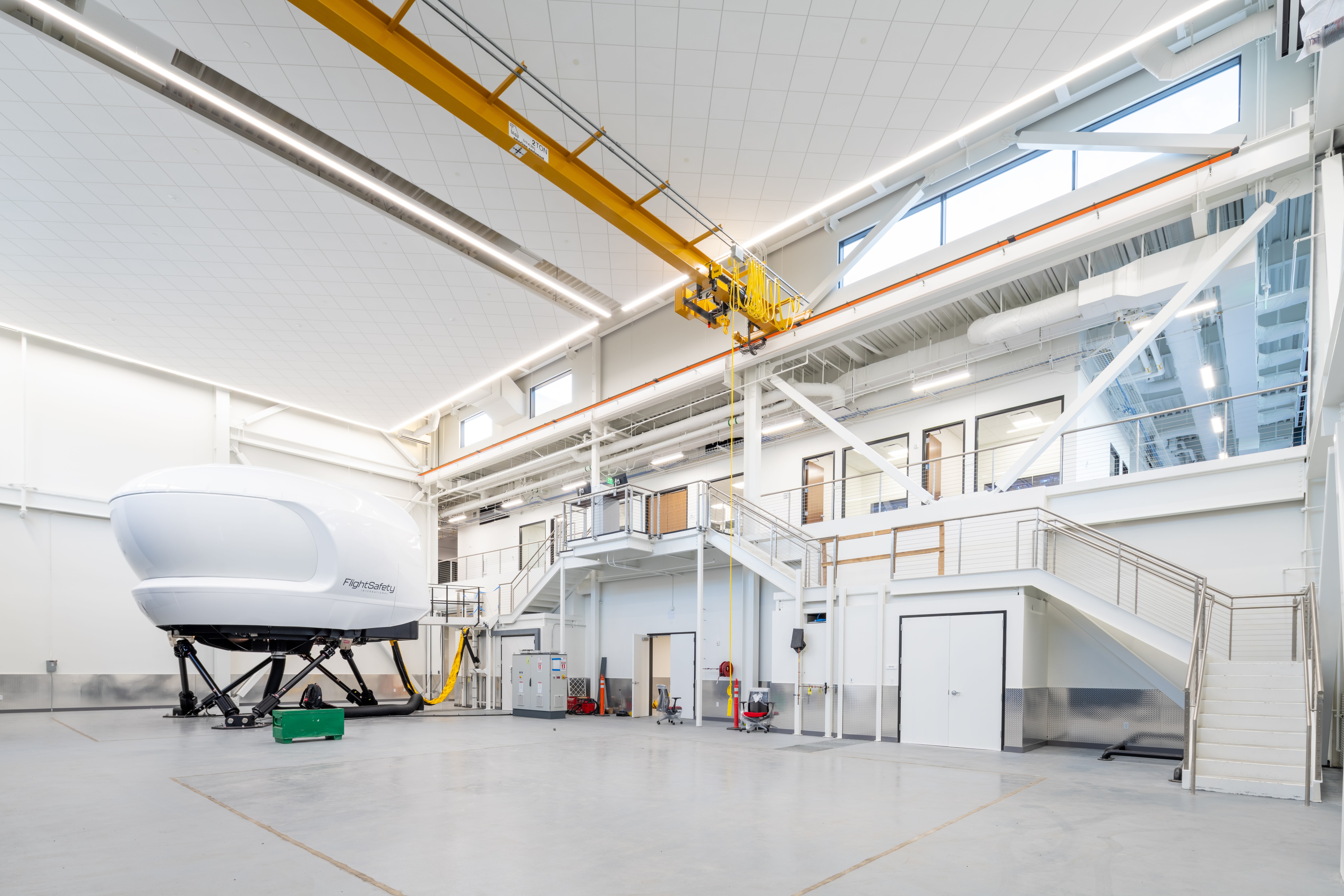Building Together: Utah’s Real Estate Market on the National Radar

August 28, 2025
When we at EDCUtah seek an independent opinion about Utah’s economy, we often ask Steven Price of Price Real Estate. As a developer, landlord, and creative thinker, he has wide-ranging experience and insights to share. We caught up with Steven recently to hear his thoughts on education, transportation, artificial intelligence, and more.
For the site selection consultants and businesses that work with EDCUtah – what should they know about Utah’s commercial real estate market?
The Salt Lake City market has grown and matured over the last 10 years. We have national and international tenants in sectors such as aerospace and defense, supply chain logistics, e-commerce, medical device manufacturing, advanced and AI manufacturing, and life sciences. We’re seeing the growth of new companies, as well as existing businesses that have much larger footprints now.
On the development and leasing side in Utah, we have a General Partner-Limited Partner (GPLP) structure that didn't exist 10 years ago, with many of them in multifamily/lodging and industrial development. As the industrial markets grow, we often had outside developers or investors. But now we have the general partners, limited partners, and investor groups that have come to develop in Salt Lake City, the Northwest Quadrant, and spreading north and south on I-15.
We also have capital looking at this market that never looked here before. Part of that is probably due to Covid-19 and the work-from-home economy that brought more people to Utah. Part of it is the Epic and IKON passes that allow people to ski throughout the world. Those passes bring people to Utah. Accelerating the growth has been the expansion of the Salt Lake City International Airport and the Delta hub – not just the commercial side, but also on the fixed-base operator (FBO) side.
When Price Real Estate staff attend national conferences, we consistently hear Salt Lake City mentioned by keynote speakers and economists in breakout sessions. That just didn't happen ten years ago. Utah is on the national radar screen for sure. And the question is—if you're not in Utah, why not?
The Price Real Estate strategy involves redevelopment. How has your approach evolved over time?
Price Real Estate is a little over 23 years old. In the beginning, we focused one hundred percent on industrial—anything from traditional rack-and-stack storage to manufacturing. And we paid attention to the industry clusters targeted by the Governor’s Office of Economic Opportunity and EDCUtah. By 2004 or 2005, we started targeting aerospace and defense, life sciences, e-commerce, and outdoor recreation.
By 2010, we were also buying urban core buildings in Salt Lake City. I had a personal commitment. I did not want these historic industrial buildings torn down for another kind of project, another kind of building. The question is, what makes a city livable? It’s what you do when you're not working. So, these buildings are now adaptive reuse buildings with dozens of local businesses in the urban core, giving residents and visitors more options and more livability.
We found that both local, national, and international tenants wanted a landlord that they could grow with. We have a strategy of growing local businesses. If you sign a lease with us, you're going to renew. Approximately 97% of our tenants renew their leases. Sometimes you don't know how fast you're growing, and sometimes you're giving back space. Sometimes you need additional space to accommodate growth. We'll give our tenants another space until we can get them into another building.
Between tariff policies; interest rates; and labor, land, and construction costs—how are you adapting to the changing real estate environment?
Tariffs impact three different issues for landlords: 1) How do we manage our buildings? 2) What are the costs to operate? Property taxes, insurance rates, and all other costs are significantly increasing. And 3) what are the impacts of tariffs if we want to build a new building?
And then there’s the impact of tariffs on our tenants. Tenants throughout the U.S. have done a few things. They've either sold down their inventory, in some cases lower than what the levels were in June 2020. Or they’ve surged inventory, getting product in faster than before. I use an I-15 analogy. Sometimes I-15 is moving at speed, in all lanes in both directions. Other times, you're starting to see red lights in front of you. You’re slowing down. Is it the weather? Is there an accident? Is it just rush hour? What's slowing us down?
Right now, we're seeing tenants, developers, and capital markets pump their brakes. We’re starting to see red lights, but there are no airbags going off.
The cause for the slowdown is different than 36 to 48 months ago. It's uncertainty about tariffs, trade policy, employment, and interest rates. All of those factors are working their way through commercial real estate. It’s the reason you see so few cranes working on multifamily projects in downtown Salt Lake City. It’s part of the reason we haven't seen a new office building since 95 State in downtown Salt Lake City. It’s the reason we’re not tilting up as many industrial buildings. There's been a traffic pause, but no accident yet. Red lights but no airbags yet.
What keeps you optimistic about the real estate market in Utah?
We have an extremely well-run state. State leaders run a balanced budget here, and government stays out of your way. The State invests in the right things, like transportation infrastructure and education.
The next thing that gives me confidence is Utah’s gross domestic product. It's very similar to the U.S. GDP. If you look at each of the different sectors of the economy, we're well-balanced. In fact, Utah has what Natalie Gochnour calls an “elite economy.”
Another thing is that the Wasatch Front is growing. The four-county region of Salt Lake, Weber, Davis, and Utah Counties are on a steady growth trajectory.
Salt Lake City International airport is another point of confidence. We often underestimate the importance of a well-run international airport. To have a Delta Air Lines hub here, and the presence of United and American Airlines, are key fertilizers in the Utah economy. About 60% of people around the U.S. fly those three big airlines. The number of non-stop direct domestic flights to and from Salt Lake City International Airport accelerates Utah’s businesses and visitor economy. And you look at the growing international coverage with new direct nonstop flights to Incheon, to South America, and a second daily flight to Amsterdam. All of this together really builds the Utah economy.
Finally, the University of Utah – with its medical school and their engineering school and business school and so much more – is training some of the best talent in the Mountain West.
These factors combined give us, as a real estate investor, tremendous confidence in how the Utah economy is growing and how it will grow in the future.
Any final thoughts?
Utah talks about a secret sauce, and one of those is that we can work together, on small things or big things. We worked together to help bring the Winter Olympics here, not just once but twice.
We know that Utah has housing affordability issues. One way to attract businesses is to focus on housing. Things will not be less expensive in the future; they'll be more expensive. We can counter that with jobs that offer upward mobility. We need to make sure we attract the right kinds of jobs that allow Utahns to enter the workforce, remain in the workforce, and achieve upward mobility.
The state also faces issues with transportation infrastructure as the Wasatch Front grows. How do we more efficiently get people to their jobs and back home so they can have live, work, play, worship balance, and quality of life? Transportation infrastructure will be vitaly important.
If we can get those things right, Utah will continue to grow.
“Building Together” highlights examples of the impact of your investment and EDCUtah’s work in communities across the state. Do you have a story you’d like us to share? Email connect@edcutah.org.







